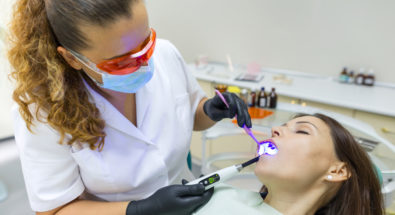What to Know Before Going in For Sedation & Anesthesia
If you’re going in for dental or oral surgery, you are typically given two options. The options are dependent on your anxiety level and the procedure’s complexity. One option is for your dentist to administer a freezing/numbing agent. You will be awake throughout your procedure. This is called local anesthesia. It is a numbing medication injected into the area of concern.
The second option, and possibly the most effective one, is the administration of intravenous sedation or general anesthesia. This is a very common method when you visit an oral and maxillofacial surgeon’s office. Most of the oral surgery procedures done at our office are complex and going to sleep is much more comfortable for you. It is done in a very safe manner and allows oral surgeons to work unimpeded, delivering optimal results. You will be asleep during your procedure and the next thing you know; you are done!
Here are a few things to know before going through with anesthesia for your surgery.
Questions to ask your dentist
You should ask your dentist regarding what type of sedation or anesthesia they are offering. Sedation varies from mild sedation to deep sedation. Oral sedation is a mild form of sedation and is commonly inadequate for complex oral surgical procedures. In BC, you need to have special training and certification to be able to provide deep sedation and general anesthesia to your patients. Here at Pacific Coast Oral & Maxillofacial solutions, we can provide all forms of sedation as well as general anesthesia.
With any procedure, you should also ask about their experience. We do sedation procedures every day. Our facility is equipped and certified by the BC college to administer all types of sedation and general anesthesia. We also have specially trained dental assistants in sedation as well as nurses.
Food & Drink
During your consultation, we will discuss with you the importance of instructions relating to what you drink and eat before you go into your surgery. Here are a few guidelines regarding food and drink consumption before your surgery.
- You should not consume any food product (i.e. solid, semi-solid or dairy item) 8 hours before your scheduled operation
- You are permitted to drink many clear liquids (fluid you can see through) including, water, sports drinks (i.e. Powerade or Gatorade), or juice like apple juice up to 2 hours before your scheduled operation. However, this also depends on whether you have any medical conditions such as diabetes that may delay your gastric emptying.
- Above instructions are critical – food and/or fluid in your stomach may cause vomiting during sedation and/or anesthesia and may lead to a medical emergency
- A safe rule would be to have nothing to eat or drink after midnight the night before your procedure
Clothing
We suggest all patients wear loose-fitting and comfortable clothing, that allows our oral surgeon and staff easy access to the skin. There are standards set for monitoring equipment to keep you safe during your surgery. We need access to your arm to put a blood pressure cuff on, access to your forearm to start an intravenous, as well as placing ECG pads on your skin to monitor your heart. Your legs and arms must not be restricted by tight clothing such as fitted jeans or fitted long sleeve shirts.
Prescribed Medication
Understandably, many patients will be required to continue taking their prescribed medication before their surgery, which makes it tricky to avoid eating or drinking. There are certain medications such as anti-hypertensive medications that we will ask you to continue taking. Should you need to take medication before your surgery, be sure, you only consume a minuscule amount of water for the medication 2 hours before the procedure.
There are also some medications that we may need to ask you to withhold. For example, some diabetic patients require insulin injections for their glucose control. We will instruct you on when to withhold or adjust your insulin injections before your sedation procedure. Be sure to discuss your medical condition and your medications with us during your consultation appointment.
Other important information regarding your upcoming surgery and anesthesia administration
- Be sure you keep your hair away from your neck and face
- If you wear contacts, please remove them before you come to our office
- if you have an illness such as a cold, sore throat, stomach or bowel upset, please notify our office well in advance
- Remove your piercings, rings, bracelets and watches
- Ensure you have a responsible adult ready to take you home following the operation as well as staying with you during your recovery that day
- Refrain from drinking alcohol or consuming tobacco products 24 hours following the procedure
- Avoid alcohol 24 hours before the surgery
- Remove all nail polish and false nails as this hinders the pulse oximeter reading, we need to place on your finger during your sedation
- Refrain from wearing high heeled shoes as you may be unsteady on your feet after discharge
- Ensure you head home following the procedure; dizziness and lethargy are common side effects following the administration of anesthetic, and therefore bedrest and relaxation are necessary to prioritize the recovery process.
- You should not operate heavy machinery such as driving a car for the first 24 hours following your surgery
- If you are pregnant or think you might be pregnant, please inform your oral surgeon
For more information, contact Pacific Coast Oral and Maxillofacial today!

